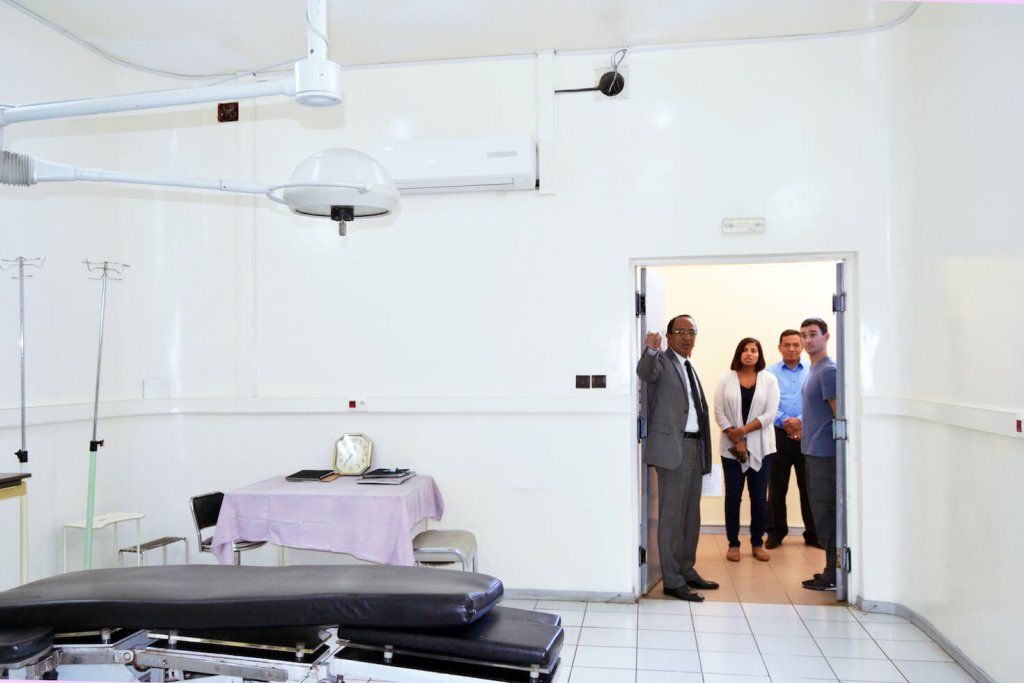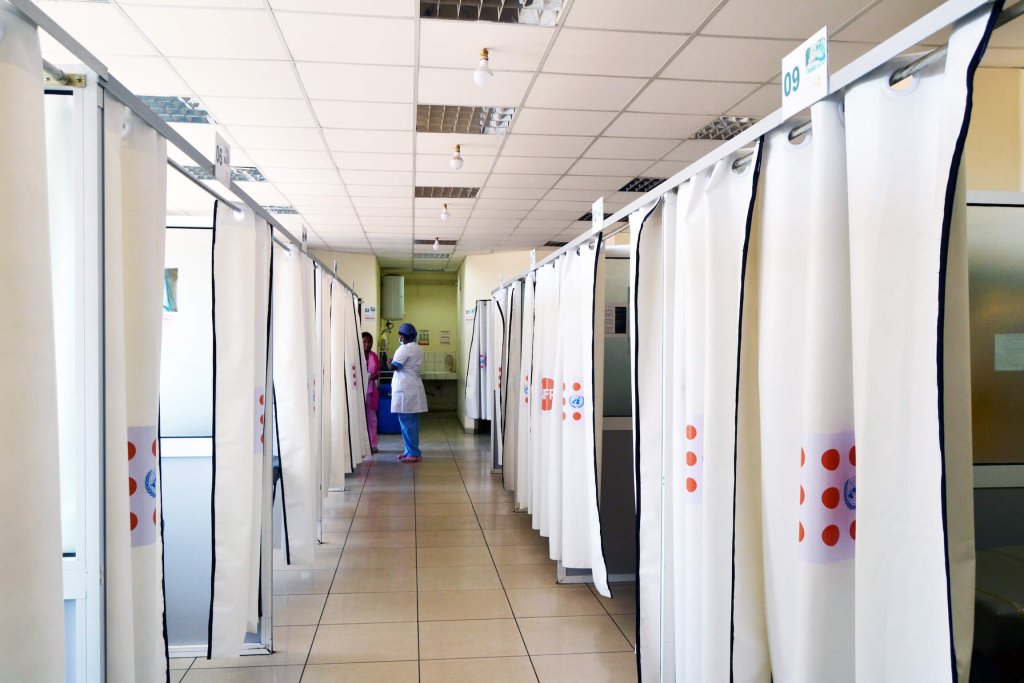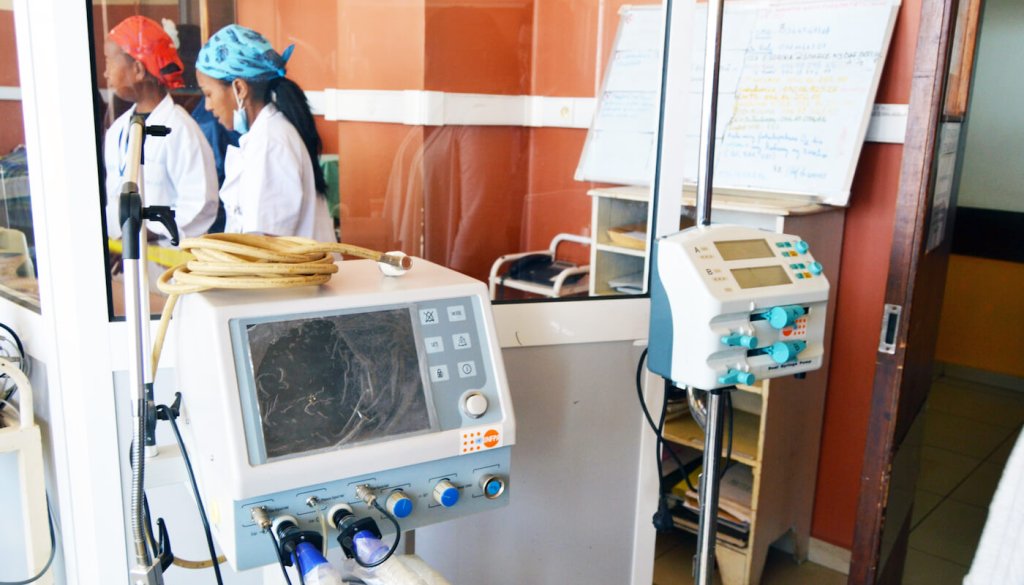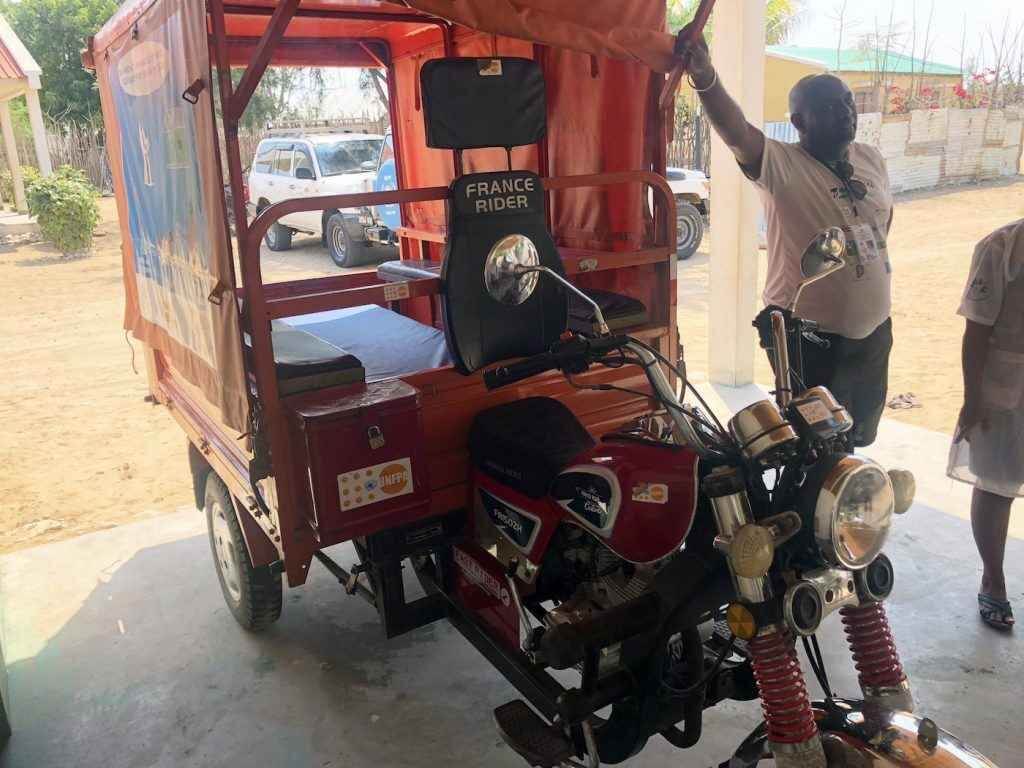Incredible Work and an Urgent Need: A Visit to UNFPA Madagascar

Late last year, USA for UNFPA supporter Jyoti Agarwal and her husband Damian traveled to Madagascar and visited UNFPA programs in the country. “It was invaluable,” said Jyoti, “for us to see firsthand the thousands of lives that can be impacted by the donations we are fortunate to be able to give.”
In 2018 my husband, Damian, and I had the fortunate opportunity to take eight months to travel around-the-world. We have been involved with USA for UNFPA for a number of years and knew that doing a field visit to a UNFPA office was high on our list of priorities for our time on the road.
We spent four days with two UNFPA offices in Madagascar and, after seeing the incredible impact made on the lives of women and children, left with a deeper and more meaningful admiration for and commitment to UNFPA’s work.
In addition to spending time with and learning from the people who work in the UNFPA Madagascar office we were able to go out into the community and meet with people whose lives have been directly impacted by UNFPA’s work.
Throughout our stay, we visited community hospitals, women’s vocational centers, a youth center, legal assistance centers, and a rural community health center.
Because of the incredible work we witnessed at each of these locations, we know that every single dollar UNFPA Madagascar spends and every single minute UNFPA Madagascar staff dedicate to their work directly impacts and improves the lives of women and children in the country.
Our time there just touched on the surface of what UNFPA does around the world, but it was invaluable for us to see firsthand the thousands of lives that can be impacted by the donations we are fortunate to be able to give.

At the community hospitals, we visited a maternity ward that was refurbished by UNFPA and supplied with materials helpful in performing C-sections. One hospital we visited hosted annual fistula repair camps to serve women from around the country. That same hospital also hosts a family planning center that provides services and contraception for free to over 1,500 patients per year.
Despite this incredible work, there is still an urgent need. As an example, many maternity beds in these facilities are worn through to the rails and, at times, because of the limited number of incubators, three premature newborns have to be placed in a single incubator.

At the women’s vocational centers, we toured facilities where women receive training on how to create their own self-sufficient businesses. These UNFPA-funded facilities provide training in computer skills, sewing, cooking, and gardening for women who have had fistula repairs and are looking to improve their own lives.
The youth center we visited demonstrated to us how UNFPA is not only performing direct services in Madagascar but is also amplifying its services by working with young people. For example, at this center for over 3,500 people, Youth Ambassadors are trained in how to teach others about reducing pregnancy rates, gender-based violence, and fistula repair.
At the rural community health center, we witnessed the stark contrast between how much impact UNFPA’s work has had and how much need still remains.

UNFPA recently funded the acquisition of a tuk-tuk for the center – a tuk-tuk is similar to a motorcycle with a large compartment for passengers – so women in need of emergency C-sections can safely reach necessary health professionals.
This vital health center, however, only has 3 to 4 hours of electricity a day, requiring doctors to deliver children via candlelight, and only two bedpans to service the 4 to 6 women who may be in labor at the same time.
This was a heartbreaking and tangible example of the unfair disparity in care available based only on what part of the world you are randomly born into.
After our visit, we feel even more impassioned to support UNFPA’s mission and hope you choose to join us in this endeavor by donating through USA for UNFPA.
-Jyoti Agarwal